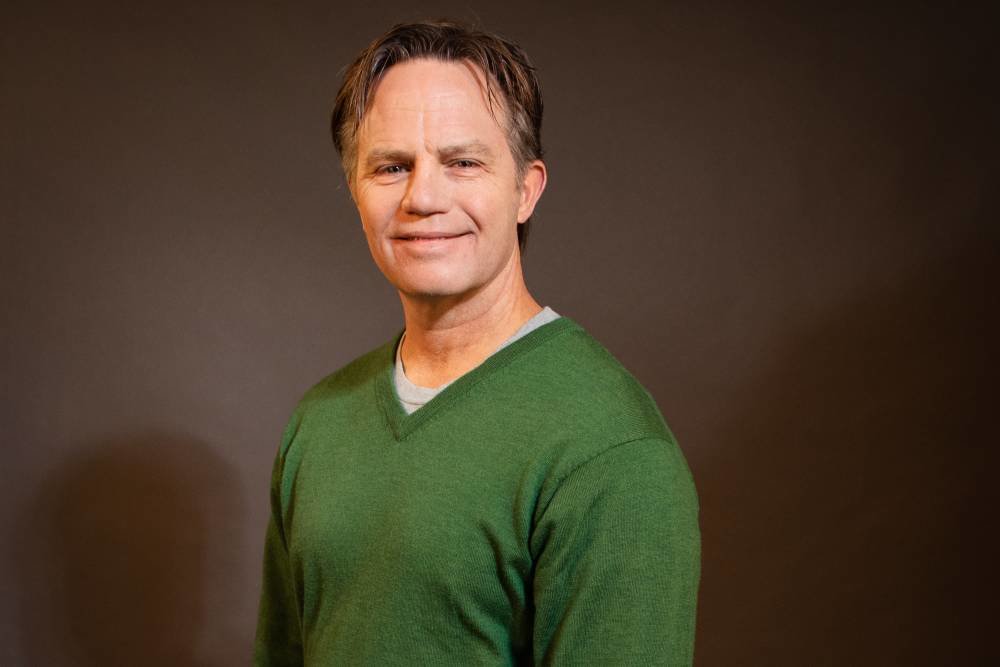YOUR BUSINESS AUTHORITY
Springfield, MO
YOUR BUSINESS AUTHORITY
Springfield, MO

Tim O’Reilly is a CEO who insists philanthropy is unequivocally connected to his company’s profitability. The numbers don’t lie, and he says the O’Reilly Hospitality Management properties that lead in giving back to their communities have the highest revenue and profits in the firm’s portfolio. O’Reilly is the guest for Citizen Inc., Episode 12, the final installment in Season 1 from SBJ Podcasts. The following Q&A is from the show, co-hosted by Springfield Business Journal’s Eric Olson and United Way of the Ozarks’ Greg Burris and recorded at ADsmith Studio.
Eric Olson: What’s the biggest way the employees of O’Reilly Hospitality Management have given back? What have you seen take hold for them?
Tim O’Reilly: We really have philanthropy and community outreach as a core part of our culture. We started that at the very beginning. We really focus on that on a property-by-property basis. It’s part of what we call our O-Reach Program. We’ve just found over the years, it’s a great opportunity for many things – community outreach and philanthropic focus does so much for your company in terms of giving people something they really feel proud of in the community. Doing good things outside of work attracts a certain personality of a giving person, and in hospitality, that’s really important. Then, of course, it does great things for the organizations we partner with. Every property decides who they want to support and what they want to do. It comes from the heart that way; it’s not a mandate from the corporate office.
Greg Burris: How different do the O-Reach programs look at the different locations around the country?
O’Reilly: The only mandate is to do something deep into your community. We try to do a focus on health and welfare needs – organizations like the Boys & Girls Club, locally, and Breast Cancer Foundation [of the Ozarks], things that do good for others that maybe don’t have the means for themselves or are in a tough spot. Some of our properties have a lot of animal lovers and they’ll go support the humane society. Some go what some would say completely overboard and they spend so much time in a community; the strange thing is those are our most successful properties. The ones that are the most connected with the community and spending the most time outside of their core job duties, it just makes a connection with people – they like our people, our properties, and they go to our restaurants and it’s a wonderful win-win.
Olson: An initial reaction as a CEO might be “We can’t go that far or spend that much time or money.” But the return was there. Was it quickly noticed, or what was the process like?
O’Reilly: It goes back to my upbringing. It’s all I’ve ever known – my parents and family were very focused on community outreach and doing good things to help people. It has a lot of basis in our religion and how we were raised. As I started O’Reilly Hospitality in 2007, I immediately implemented these things. Some of it goes back to the DoubleTree, our first hotel in Springfield, Missouri. They have what’s called a Care Committee, a Care Culture. It fed right into what we wanted to do. It was fairly dramatic on the return from a business standpoint.
Burris: Are you seeing the ROI?
O’Reilly: Absolutely. We do have a business to run and a bottom line. We’ve found that we get paid back many, many times over what we give in terms of hours that are paid that focus on these philanthropic efforts. There’s an ROI that’s off the charts. I can take every one of our properties that have a really core focus and great leadership and are very excited about philanthropic outreach, and every time, they’re the highest revenue and the most profitable properties that we have. It’s across the board.
Burris: Makes you wonder, over the next 20 years, organizations that don’t do this – will they survive?
O’Reilly: I don’t think so. The franchise companies we work with do a lot of research on current customers and future guests. In the future, the guests and the employees need to feel like they’re a part of something bigger than the bottom line. If you don’t have a culture that makes people feel good, I don’t know how you’ll continue to go. People are looking for much more than a paycheck. They are looking to be a part of something that’s important, that does good work.
Alair Springfield is first Missouri franchise for Canada-based company.